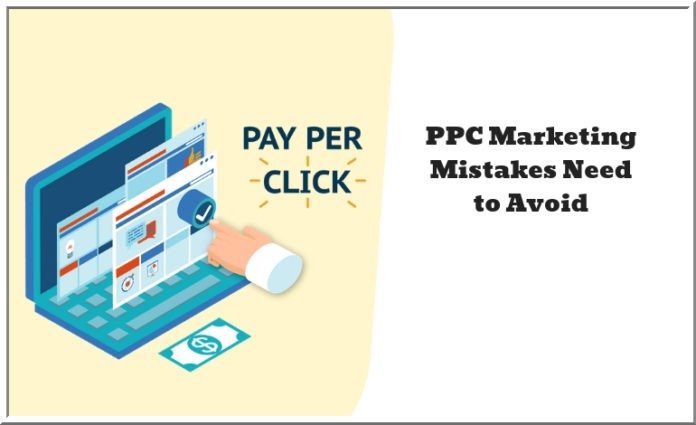Table of Contents
5 PPC Marketing Mistakes Need to Avoid
PPC (Pay-Per-Click) marketing is a simplified model of internet marketing, which involves you paying a fee each time your ad is clicked. This is a way of buying rather than earning organic traffic for your site. Since every click needs to be paid for, it is essential that you do not get random people clicking on the link. You would rather have seriously interested consumers (who can get converted to potential customers) clicking on your link and visiting your website. You need to take care to avoid some common mistakes related to PPC, which can lead to a low ROI:

1. Not Planning Strategically
It is essential to understand what it is that you are trying to achieve through any marketing campaign. If you do not have a clear goal, the efforts that you put in will not be able to give you any concrete results. It can prove even more harmful when it comes to PPC marketing. You need to have a clear goal and proper planning to get to that goal. You will need to define the composition of your target universe and the ways you can extend your reach till them.
If you are unable to define these, you will not know how to go ahead with the campaign. You won’t even be able to give it a form or text. Not only that, you will not know what to offer the consumers who end up clicking your advertisement. The landing page will be ineffective as it won’t be designed to address the needs of those consumers. On the other hand, if you can clearly define your consumer segment(s) and plan your campaign accordingly, you will find that PPC can be a potent tool.
2. Using a Conversion Funnel without Testing It
Before you can even start writing your ads, it is essential that you have some conversion funnels in your mind. Once they are in place, test them to see whether they are working as you want them to. Use the analytics to check the functionality of your campaign and then only take the decision of launching it.
This does not apply just to PPC campaign but any campaign in general. It is essential to test the conversion funnel, or you will end up wasting the right amount of investment without any returns. You will save yourselves from spending on visitors who will not purchase due to various reasons.
3. Choosing the Wrong Metrics
You should be able to understand the critical factors that you need to assess to know whether a campaign is successful or not. And this should be done before the ad is made to go live. Quality assurance needs to be done for your profit. Perform the following tests and be assured of the suitability of the PPC advertising campaign for your goal.
- Heuristic analysis of the website
- Testing across devices and browser platforms
- Testing is done by a user
- A health check with Google analytics
4. Confusing Between Different Terminologies
Display network or content match is the option provided by Google where the paid listings are not placed in the SERPs but on a network of websites with relevant content. SERPs contain the listings that match the query of a user. These are generally based on keywords. These may include the relevant ads if there is bidding happening on the searched term. PPC Marketing or search engine advertising is different from display advertising and should not be confused.
CTR (Click-Through Rate) is also different from the conversion rate, and the two should not be confused. CTR refers to the proportion of people who click on the ad to the total viewers of the same advertisement. Conversion rate, on the other hand, is the ratio of people who perform the desired action after clicking on the ad and arriving on the landing page.
It is essential to understand the difference between these concepts when running a PPC campaign.
5. Using the Wrong Keywords
Once you have identified your target segment, you will have to understand what their choices and interests are. You will have to capture their attention by targeting them with the relevant keywords. Use the right keywords, but do not go overboard. Be very careful about keeping in mind your products or services on offer.
Do not use broad match or generic keywords unless you have lots of money to splurge on your campaign. As an example, do not bid on “phone” as a keyword. You will end up paying an excessive amount of money for all the traffic that you will get as it is very likely going to be unproductive. Be more specific with the keywords and go for the exact match.
Irrespective of your experience in the field of PPC marketing, it is essential to understand and avoid making these mistakes. It could change your ROI drastically and make a massive difference to your business and its growth rate.



